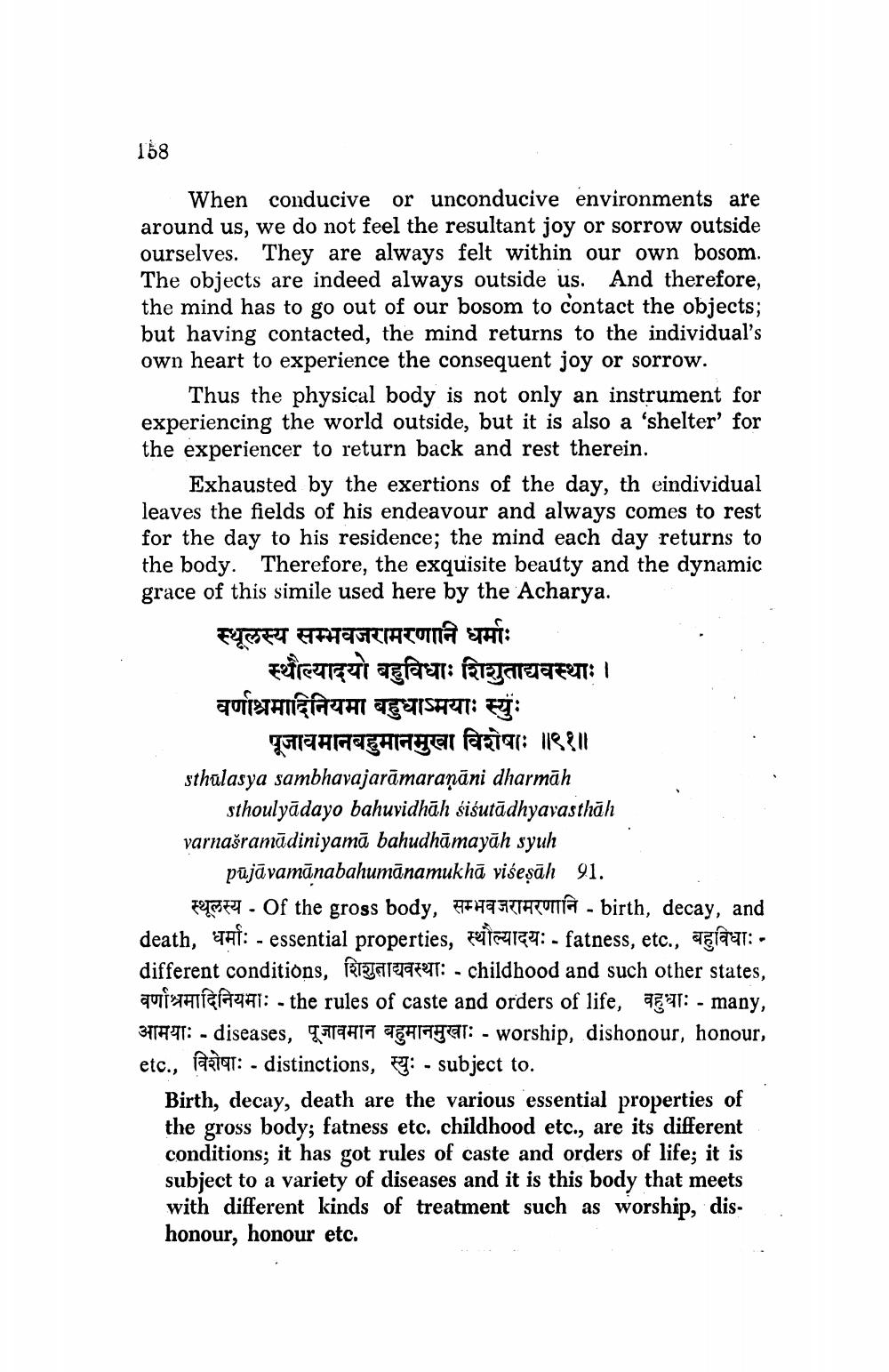________________
158
When conducive or unconducive environments are around us, we do not feel the resultant joy or sorrow outside ourselves. They are always felt within our own bosom. The objects are indeed always outside us. And therefore, the mind has to go out of our bosom to contact the objects; but having contacted, the mind returns to the individual's own heart to experience the consequent joy or sorrow.
Thus the physical body is not only an instrument for experiencing the world outside, but it is also a 'shelter' for the experiencer to return back and rest therein.
Exhausted by the exertions of the day, th eindividual leaves the fields of his endeavour and always comes to rest for the day to his residence; the mind each day returns to the body. Therefore, the exquisite beauty and the dynamic grace of this simile used here by the Acharya.
स्थूलस्य सम्भवजरामरणानि धर्माः
zefreunçuì agfaur: fagaleazen: | वर्णाश्रमादिनियमा बहुधामयाः स्युः
पूजा व मानबहुमानमुखा विशेषाः ॥९१॥ sthulasya sambhavajarāmaraṇāni dharmāh
sthoulyādayo bahuvidhāh śiśutādhyavasthāh varnašramādiniyamā bahudhāmayāh syuh pūjāvamānabahumānamukhā viseṣāh 91.
स्थूलस्य - Of the gross body, सम्भवजरामरणानि birth, decay, and death, धर्माः - essential properties, स्थौल्यादयः - fatness, etc., बहुविधा: -
different conditions, ga: - childhood and such other states, वर्णाश्रमादिनियमाः - the rules of caste and orders of life, वहुधा :- many, worship, dishonour, honour, विशेषाः - distinctions, स्यु: - subject to.
- diseases,
-
etc., Birth, decay, death are the various essential properties of the gross body; fatness etc. childhood etc., are its different conditions; it has got rules of caste and orders of life; it is subject to a variety of diseases and it is this body that meets with different kinds of treatment such as worship, dishonour, honour etc.




